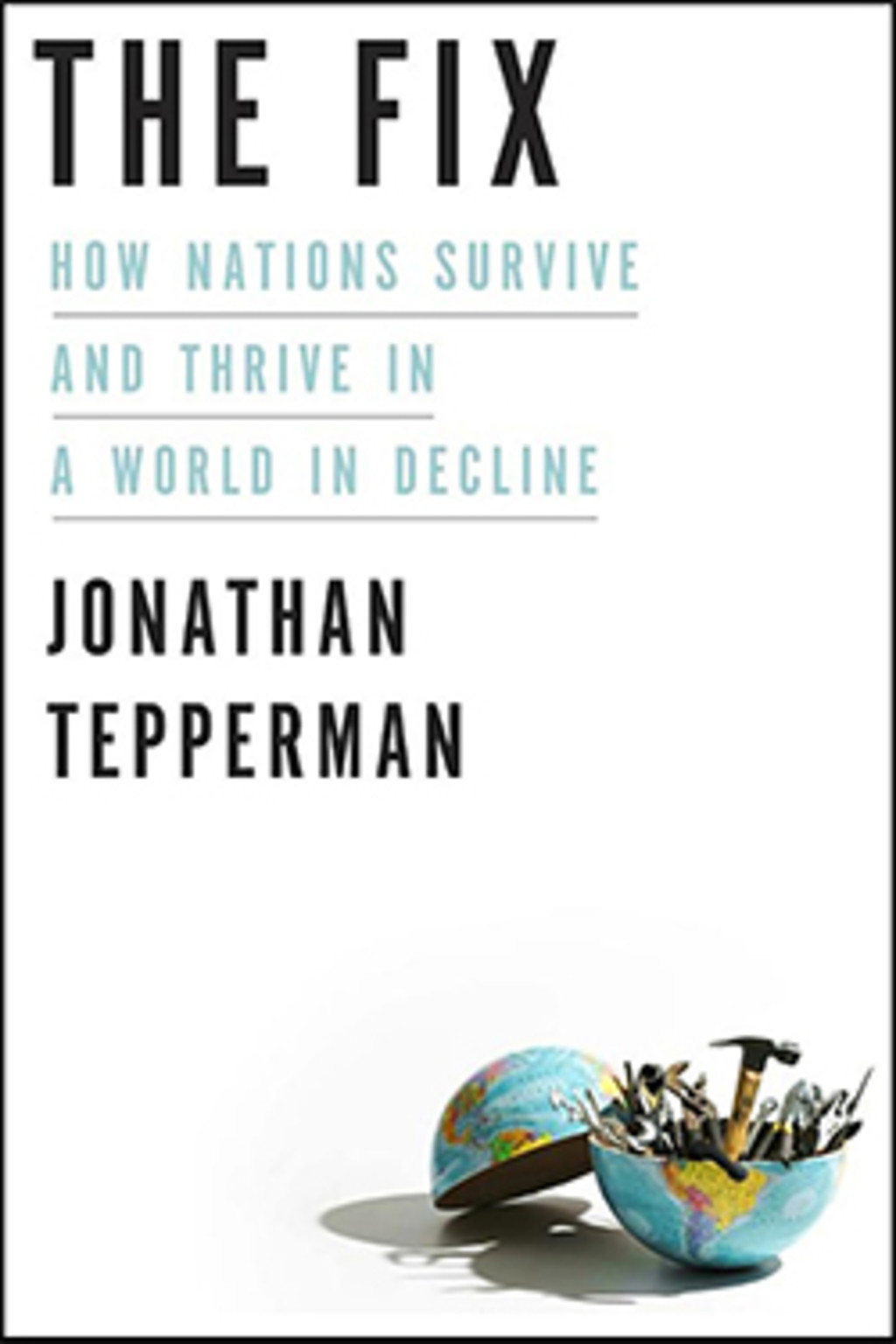The Fix
How Nations Survive and Thrive in a World in Decline
A provocative look at the world’s most difficult, seemingly ineradicable problems—and the surprising stories of the countries that solved them.

- Publisher
- Random House
- Release Date
- September 2016
- Pages
- 320
- ISBN
- 978-1-101-90298-1
We all know the bad news. The heady promise of the Arab Spring has given way to repression, civil war, and an epic refugee crisis. Economic growth is sputtering. Income inequality is rising around the world. And the threat of the self-declared Islamic State and other extremist groups keeps spreading. We are living in an age of unprecedented, irreversible decline—or so we’re constantly being told.
Jonathan Tepperman’s The Fix presents a very different picture. The book reveals the often-overlooked good news stories, offering a provocative, unconventional take on the answers hiding in plain sight. It identifies ten pervasive and seemingly impossible challenges—including immigration reform, economic stagnation, political gridlock, corruption, and Islamic terrorism—and shows that, contrary to the general consensus, each has a solution, and not merely a hypothetical one. In his close analysis of government initiatives as diverse as Brazil’s Bolsa Família program, Indonesia’s campaign against extremism, Canada’s early embrace of multiculturalism, and Mayor Michael Bloomberg’s reform of the New York Police Department, Tepperman isolates the universally applicable measures that can boost and buttress equality, incomes, cooperation, and cohesion in wildly diverse societies. He flips conventional political wisdom on its head, showing, for example, how much the U.S. Congress could learn about compromise and conciliation from its counterpart in Mexico.
Tepperman has traveled the world to write this book, conducting more than a hundred interviews with the heads of state and other innovators responsible for these unexpected success stories. His access and expertise make The Fix a work of unusual insight, focused on the people and leadership lessons behind the policies. Meticulously researched and deeply reported, it presents practical advice for aspiring problem-solvers of all stripes, and stands as a necessary corrective to the hand-wringing and grim prognostication that dominates the news these days, making a data-driven case for optimism in a time of crushing pessimism.
Reviews and Endorsements
Just when it looks like the world’s problems couldn’t get much worse, The Fix cuts through the gloom like a ray of sunshine. With storytelling reminiscent of Michael Lewis and a surgeon’s eye for detail, Tepperman takes us on an eye-opening tour of the planet’s local villages, cabinet rooms, and presidential palaces—where a few outstanding leaders have made real strides toward solving colossal economic and political challenges. If you care about understanding the world or improving it, this book is not to be missed. It may very well change the face of leadership.
Adam Grant, author of Originals
Readers looking for good news will love this book. Tepperman makes a compelling case, in lively and personal prose, that strong leaders willing to forsake political orthodoxy for good ideas can actually solve the toughest problems the world faces. Governments from Brazil to Canada to Indonesia have successfully tackled problems ranging from inequality to immigration to radical Islam. All is not lost!
Anne-Marie Slaughter, author of Unfinished Business
The Fix is a refreshing and readable new way of looking at the world. Tepperman combines old-fashioned reporting, storytelling, and social science to create a roadmap for solving today’s great problems, from radicalism to inequality to political paralysis. Anyone disheartened by the current state of affairs should read this original, super-smart, and eye-opening book.
Charles Duhigg, author of Smarter Faster Better
We hear every day about all the perils and problems we face. Along comes this wonderful, intelligent, well-written book that tells us about all the solutions. Traveling around the world, Tepperman has found countries that took on big challenges, from inequality to immigration, and found innovative solutions. This book will inform and enlighten you—and cheer you up.
Fareed Zakaria, author of The Post-American World
The Fix is the book we’ve been waiting for, one that tackles the seemingly insurmountable problems of our time—from inequality to partisan gridlock to terrorism. Best of all, it offers solutions. By showing how countries around the world have overcome these problems, The Fix brings hope when we need it most.
Daniel H. Pink, author of Drive
Despair no more. In this original and engaging book, Tepperman takes on the declinist conventional wisdom with insight and vigor. There are answers out there, he argues: all we need to do is look around, and learn. A wise and timely book.
Jon Meacham, author of Destiny and Power
An important and unusually engrossing book that merits wide attention.
[Tepperman] concludes that the world’s leaders will only solve the biggest problems by putting party alliances and ideology aside. The book is an enjoyable read, even for those less informed about foreign policy.